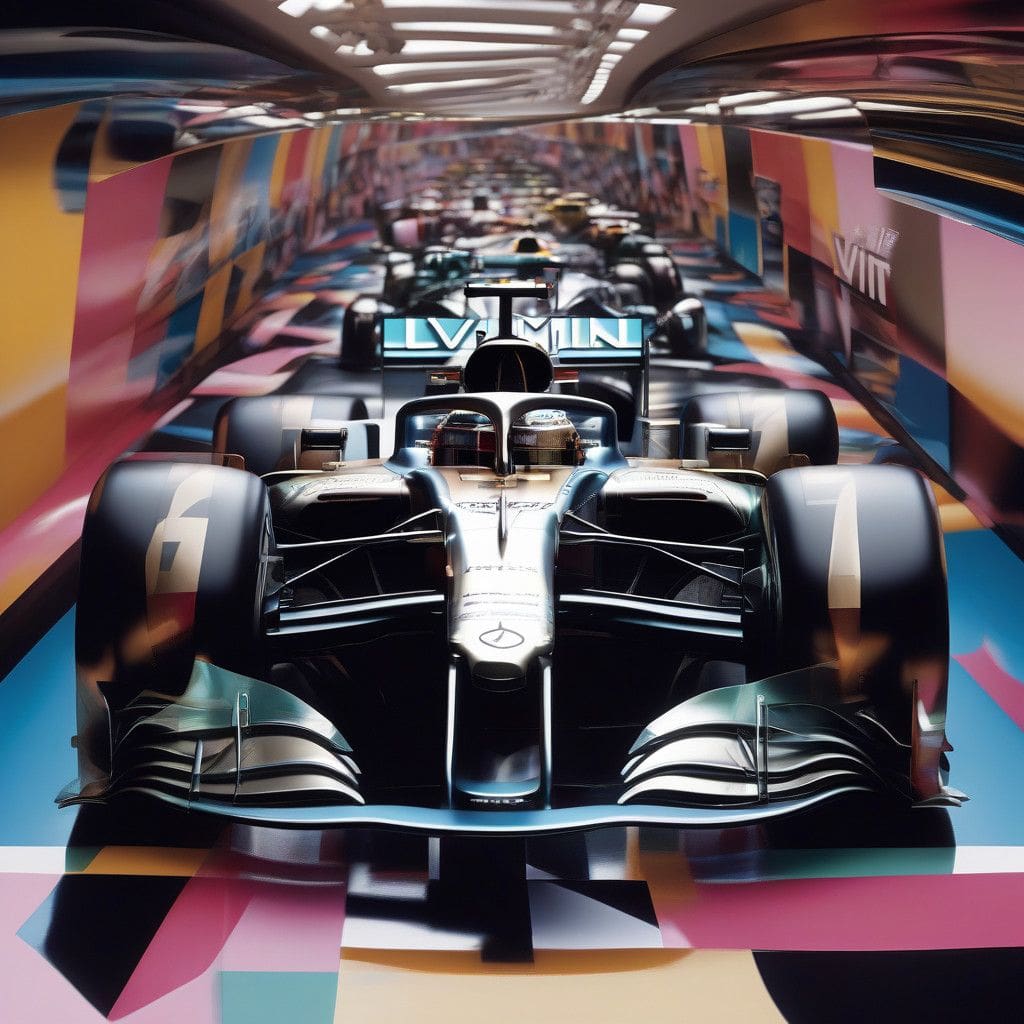LVMH Moët Hennessy Louis Vuitton, a titan in the luxury goods sector, is on track to secure a monumental sponsorship deal with Formula One. This partnership, still in the final stages of negotiation, represents a strategic move that would not only spotlight LVMH’s prestigious brands on the global racing stage but also reshape the marketing landscape for luxury products.
A Potential $150 Million Breakthrough
Reports suggest that the agreement could be valued at approximately $150 million per year, a significant investment that underlines LVMH’s commitment to expanding its brand visibility. The deal would incorporate various brands under the LVMH umbrella, including renowned watchmaker Tag Heuer, Moët & Chandon Champagne, and potentially other luxury offerings, such as its hotel chains. The inclusion of diverse brands offers an unparalleled opportunity to engage a vast audience, making it far more than just a conventional sponsorship.
This potential partnership poses a direct challenge to Rolex SA, the long-standing timekeeping sponsor of F1 since 2013. If finalized, LVMH could significantly alter the competitive dynamics of sponsorship deals within the high-stakes world of motorsports.
F1’s Soaring Popularity
The surge in Formula One’s popularity arises from multiple factors including an expansion of race venues and a new fan base fostered by Netflix’s documentary series, “Formula 1: Drive to Survive.” The series has revolutionized how viewers engage with the sport, providing dramatic insights into the lives of F1 drivers, thereby creating a dedicated following that luxury brands aim to capture.
With increasing interest in the sport, a deal with LVMH would offer the luxury conglomerate an expansive platform to reach affluent audiences worldwide. According to experts, this could serve not just as an advertising approach but also as a strategic entry into the lifestyle domain that motorsports represent.
The Strategic Importance of Collaboration
LVMH’s ambitions extend far beyond mere visibility; they are also about positioning their various luxury brands within a premium lifestyle context. The conglomerate’s previous sponsorships illustrate this circular logic. For instance, LVMH’s involvement in global sporting events, such as the FIFA World Cup and the Olympic Games, has always focused on aligning its brand ethos with the excitement and exclusiveness of high-profile competitions.
Through this F1 deal, the conglomerate could follow in the footsteps of successful collaborations, like its sponsorship of Celine Dion during the Olympics where she donned a sparkling Christian Dior gown while performing from the Eiffel Tower. Such high-profile visibility typically translates into brand loyalty and recognition, which are invaluable in the luxury market.
A Multi-Brand Advantage
LVMH’s wide array of brands gives it a distinct edge compared to Rolex, which specializes solely in watches. The breadth of offerings from LVMH means that they can tailor their advertising strategies across multiple platforms, featuring a variety of products that could attract diverse consumer segments—an approach that Rolex cannot replicate.
Moreover, LVMH’s experience with sports marketing positions it well to effectively navigate the complexities of this potential relationship. The conglomerate has crafted campaigns featuring sports icons such as Cristiano Ronaldo and Lionel Messi, further solidifying its expertise in aligning luxury with high-performance sports.
Conclusion: The Future of Luxury Branding
If the deal goes through, it would not only represent a significant victory for LVMH but could also set a precedent for how luxury brands engage with sports marketing. By integrating high-end products into the adrenaline-fueled environment of Formula One, LVMH could redefine luxury branding, making it both ubiquitous and aspirational. With the agreement potentially being finalized within the year, the luxury world is watching closely as we move toward a new era of luxury brand engagement in global sports.












